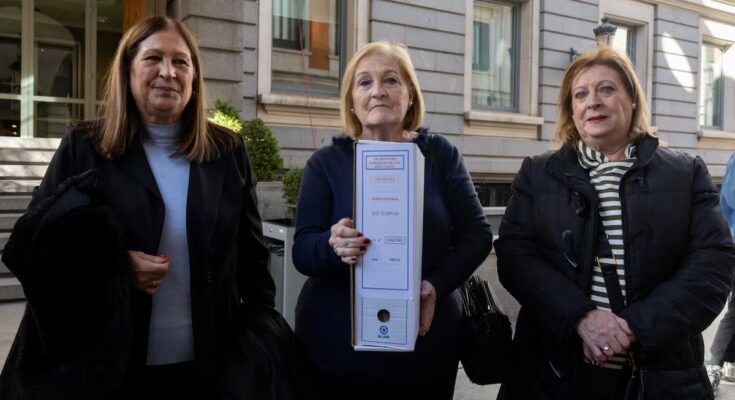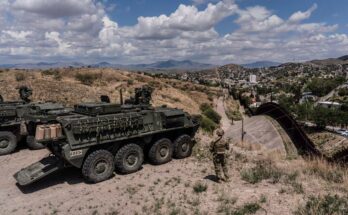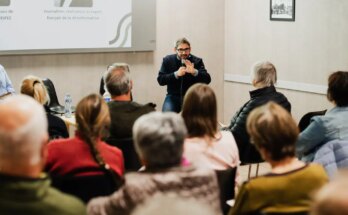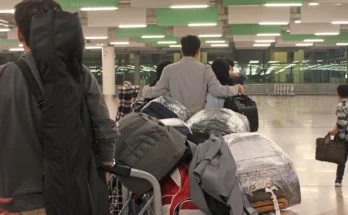They have two filing cabinets, more than 2,000 pages full of information and a pendrive with audio that until now had remained under official secrecy. A huge amount of documentation of which they only want one piece of information: the name of the person who ended their brother’s life. Purificación, Dolores and Paqui García Caparrós have been fighting for 48 years to declassify the documents that contain what they have been pursuing since 1977, when their brother Manuel José García Caparrós was taken away from them. The Malaga trade unionist died at the age of 18 after being shot by a police officer during the demonstration in favor of the statute of Andalusia in his hometown. The three sisters will leave Congress this Tuesday with everything that was gathered by the so-called Commission of Inquiry that in 1978 investigated what happened that day. His is still one of the unsolved crimes of the Transition today. Now they are looking for a lawyer to see what they can find out.
“We will be able to see everything, what is not clear is what we will be able to reveal,” says Dolores on the doorstep of the Chamber. All the information they have in their hands continues to be confidential and they know that they risk criminal consequences if they disclose it, even if this does not stop them. “I won’t keep these secrets for another 50 years,” Dolores explains. Purification continues: “There are things that can’t be spread, but I don’t put the pendrive in a box. I’ll take it out as soon as I know what’s there” and adds “I’m sorry” without a shred of remorse. “He told us to prepare ourselves, because we will see very exciting things,” say the nuns who will seek legal advice to see how and to what extent they can say this.
The tears with which they arrived at the Congress were dried by the cold of Madrid. A cold that, they say, the sisters are feeling because they still don’t know what happened. What they were told that day is not the truth. On the afternoon of December 4, 1977, a man knocked on the door of their house and said that his brother had been in a car accident and was hospitalized in very serious conditions. In reality, Manuel José García Caparrós had been killed by a police officer during the demonstration calling for the region’s autonomy. “That bullet was for all of Andalusia, but the only one who didn’t return home was him,” Loli says in the corridors of the Chamber.
Caparrós worked at Cervezas Victoria and was a union member of the Workers’ Commissions. That afternoon there was an altercation in front of the Malaga Provincial Council building because its president refused to raise the Andalusian flag. It was then that a young man present there, Juan Manuel Trinidad Berlanga, went up to the balcony to put it on. The police left the Provincial Council building and charged the protesters with rubber bullets and smoke bombs. Caparrós was killed by a bullet removed in hospital and is still missing today.
For the three sisters, the wound is a little closer to closing after this small victory made possible by the Council of the Congress of Deputies recently approving a new rule on the functioning of the Chamber archive, which allows them to consult confidential information without eliminating any names. The family began the fight hand in hand with the IU and Sumar took up the baton in December 2024. Last January he registered another proposal that would change the rule so that the information includes names, since until then the data was deleted.



